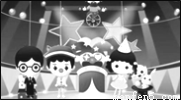0 127536 127544 127550 127554 127560 127562 127566 127572 127574 127580 127586 127590 127592 127596 127602 127604 127610 127614 127616 127620 127622 127626 127628 127630 127631 127632 127634 127635 127636 127638 127640 127644 127646 127650 127652 127656 127662 127664 127670 127674 127676 127680 127686 127692 127694 127700 127704 127706 127712 127716 127722 127730 159627


